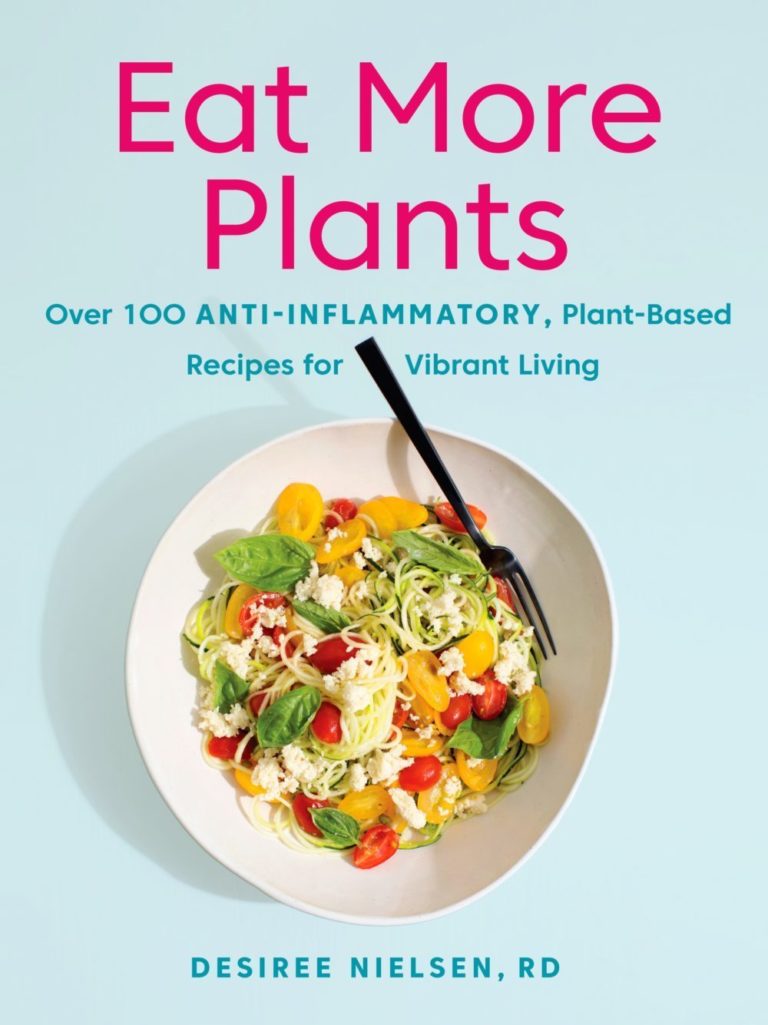Articles, Gut Health, Low FODMAP ·
What causes bloating – and ten quick fixes for bloating.
Ever wonder what causes bloating? I’ve asked my Senior Associate Jess Pirnak RD to dive into the everyday – and not so everyday – causes of stomach bloating…plus we’ll give you some concrete tips for how to beat stomach bloating – and when to see your doc.
I’ve always been fascinated by digestive troubles. When I was a new dietitian, I read everything I could on how to use diet to manage diarrhea and constipation, the pain of irritable bowel syndrome (IBS) and the heartburn associated with acid reflux. Amazingly, bloating was almost never discussed as a nutritional topic – it took me years of working in private practice to learn what bloating is and to understand that bloating was not a single, uniform experience that could be fixed with a one-size-fits-all solution.
What is bloating?
Your experience of bloating might be different from someone else’s. It might be a feeling of excessive fullness after eating, or your belly could actually be distended. Some people have bloating with gas (from either end), and it could be painful. Some people have relief after going to the bathroom, some people wake up bloated while others find that their bloating builds as the day progresses. What you might be surprised to know is that while bloating often feels like too much gas, research suggests that isn’t actually the case.
What causes bloating?
Because bloating doesn’t look the same for everyone, you might expect that it has multiple causes…and you’d be right! What causes bloating for one person might not be the same for another.
- Swallowing air (gum chewing, or talking while eating)
- Eating gas-producing foods, such as fizzy drinks
- Eating too quickly, which leads to poor chewing and swallowing more air
- Overeating – note that if we wait too long to eat between meals we tend to overeat
- Meal size vs abdominal size; if you have a small abdomen, you will notice it expand more when you eat
- Sluggish digestion, such as slow stomach emptying or slow elimination
- Dietary changes, such as eating more fibre-rich plant foods
- Dysbiosis: imbalance in the intestinal bacteria
- Stress can cause your digestion to slow down
- Drinking smoothies too quickly, which will carry a big osmotic load
When is bloating normal – or a sign of something else?
Everyone toots! Studies have shown that the average person generates 0.6-1.8L of gas per day…even if they don’t realize it. For lots of people, the passage of gas through the digestive tract causes no symptoms and is a sign of a healthy, happy gut. But some people experience frequent burping or belching, uncomfortable abdominal bloating, and lots of gas. If this sounds like you and you have significant ongoing digestive issues, the first thing to do is always see your health care practitioner to rule out any serious underlying causes like the ones below.
Conditions associated with increased bloating
Bloating is a symptom of something else, not a medical condition unto itself. Some of these conditions include: irritable bowel syndrome (IBS), inflammatory bowel disease (IBD), celiac disease, constipation, gastroparesis, cancer, or small intestinal bacterial overgrowth (SIBO).
- IBS – a condition characterized by a combination of symptoms (bloating, cramping, abdominal pain, diarrhea, or constipation) that last for three or more months. If you have IBS, you might be bloated when indigestible carbohydrates called FODMAPs are poorly broken down and unabsorbed in the small bowel. As a result, fermentation occurs, producing gas as a byproduct, leading to bloating and distention.
- IBD – inflammation in the lining of the gastrointestinal tract, including Crohn’s disease and ulcerative colitis. Certain foods and beverages can worsen symptoms of IBD, such as diarrhea, constipation, fatigue or low energy, abdominal pain, bloating and cramping.
- Celiac disease – an autoimmune disease in which the immune system attacks the small intestine. It’s triggered by a protein called gluten that’s found in wheat, barley, and rye. The classic gastrointestinal signs and symptoms of celiac disease include: diarrhea, constipation, abdominal pain, bloating, gassiness, weight loss or weight gain, cramping, heartburn, nausea and vomiting, and lactose intolerance.
- Constipation – constipation and bloating go hand-in-hand. If you’re not emptying your gut, there’s no room in your abdomen, and you’ll have excess bloating! The build-up of fecal matter, and additional time for carbohydrates to ferment in the large bowel can mimic the pain and pressure of bloating.
- Gastroparesis – a sluggish emptying of food from the stomach into the small intestine. Bloating from gastroparesis is not typically painful, but it produces a belly that feels full and is often visibly distended. Gastroparesis affects about 2% of the population and it’s more common in women than in men.
- Cancer – colon, ovarian, stomach, and pancreatic cancer are among the cancers that can have chronic bloating as a symptom.
- SIBO – this occurs when there’s too many bacteria living in the wrong neighbourhood of your gut, namely your small intestine! SIBO can lead to severe bloating and distension. Most people with SIBO complain of having lots of intestinal gas, which can be quite painful. Sometimes the gas produces a distended looking belly and sometimes it just results in lots of farting, and sharp pain.
Bloating is complicated – and what works for someone else might not work for you. That’s why we recommend you work with your favourite health care professional or dietitian to get really clear and individualize your care.
If your bloating is accompanied by any of the following symptoms, you should see a doctor promptly: blood in your stool, difficulty swallowing, recurrent vomiting, unintentional weight loss, fever, or jaundice.
10 Quick Fixes for Bloating
We want to leave you with some quick solutions for bloating – and not all of them have to do with the foods you eat. Some will help with what causes bloating – while others simply relieve the bloating itself.
- Eat slowly and chew food well. The better you chew your food, the more efficiently you will digest it, leading to less food left in the stomach for fermentation.
- Gradually increase fibre in your diet. If you’re getting on the fibre train, don’t add too much all at once! It takes time for your gut to get used to fibre. Instead, start with one fibre-rich meal a day, like a chickpea scramble.
- Avoid talking with your mouth full. You’ll swallow more air.
- Skip the straw and bubbly beverages at mealtime. Because, air.
- Try not to eat when upset or in a hurry. It can hinder digestion due to the brain-gut connection.
- Drink some peppermint tea. It is a carminative, meaning it helps to relax the gut muscles. Use 2-3 tea bags per cup, or take enteric coated peppermint oil as needed
- Chew fresh, picked or dried ginger or sip it as a tea throughout the day. It helps with stomach emptying.
- Chew a few organic fennel seeds after a meal. Fennel is a traditional remedy for gas and improving digestion.
- Move your body. Exercise improves gas clearance from the bowel.
- Avoid alcohol. It can irritate the gut and dehydrate, leading to constipation.
Longer term solutions for bloating
- Try soft, low fat foods for a couple of days. If your stomach is sluggish, the texture of food arriving into your stomach matters! Anything you can do to preblend your meal before swallowing will help. And as much as we love our healthy fats, you want to aim for low fat foods right now, as fat naturally breaks down slower in your stomach.
- Try to go 12 hours overnight without food, to allow for multiple Migrating Motor Complex (MMC) cycles to happen! The MMC helps clear gut contents through. Finish dinner by 7:30PM and then don’t eat breakfast until 7:30AM.
- Increase your soluble fibre if you’re constipated. Fibre helps people with sluggish colon motility or weaker pelvic floor muscles by bulking up their stools. Why is this important? Because they are easier to pass! In our practice, we recommend psyllium husks. Start with 1 teaspoon daily, working your way up to a tablespoon over a few weeks. Make sure you drink LOTS of water.
- Talk to your doctor or dietitian about the low FODMAP diet. When bloating is the result of a group of short-chain carbohydrates called FODMAPs being poorly absorbed in the small intestine, following the low FODMAP diet (for a short period of time) can help. The low FODMAP diet is best when done under supervision by a dietitian.
- Manage your stress! Stress can actually be an enormous contributor as there are very deep and complex connections between your brain and your enteric nervous system, with what happens in one area affecting the other. Write out a list of your favourite activities and try to do one a day. If exercise is one of those activities, lucky you, as you can kill two birds with one stone (ugh, I really do hate that expression!) as exercise helps promote movement in the gut and clearance of gas.
Posted By: Desiree Nielsen · In: Articles, Gut Health, Low FODMAP

Revolutionize your approach to a healthy anti-inflammatory diet with the power of plant-based foods.
Order Now
You’ll Also Love
-
 Got statins? My thoughts on the new cholesterol guidelines and how the way to a healthy heart is definitely though the stomach.
Got statins? My thoughts on the new cholesterol guidelines and how the way to a healthy heart is definitely though the stomach. -
 What is Mindfulness…and what does it have to do with eating?
What is Mindfulness…and what does it have to do with eating? -
 January Playlist: For the Win
January Playlist: For the Win
Leave a Reply Cancel reply
Your email address will not be published. Required fields are marked *
Comment
Recipe Rating Recipe Rating
Name *
Email *
Website
Save my name, email, and website in this browser for the next time I comment.









